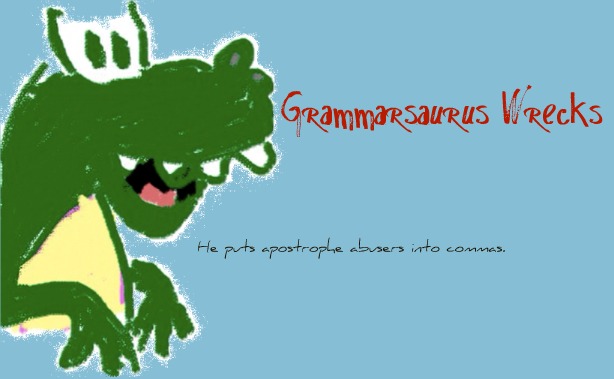A malapropism, for any less-geeky readers out there, is when you mean to use a certain word, but accidentally use a similar-sounding but different word instead. The character Dogberry in Shakespeare's Much Ado About Nothing frequently engages in this behavior:
"Our watch, sir, have indeed comprehended two auspicious persons." (III.v.41-42)
He obviously means they have taken two shady characters into custody (apprehended two suspicious persons); what actually comes out is that he understood two favorable people.
Malapropisms can be entertaining and endearing in literary characters or as a once-in-a-while slip of the tongue; good-natured ribbing ensues. However, malapropisms as a result of someone pretentiously trying to sound ultra-intelligent can start to grate on the nerves.
What? Personal experience? Whatever gave you that idea?
If you've ever wondered about my bio information and why "quintessential" matters, it all comes back to the reason I went to law school: the Curly-Haired Boss, or CHB for short (closely related to the PHB). Leaving aside the more traumatic elements behind this situation, the CHB had an annoying malapropism habit, such as the following exchange:
CHB: We need to get the correct address, because that's quintessential in getting the letter sent out.
Me: (longish pause) Did you mean "essential"?
CHB: (even longer-ish pause) Did I?
Me: Yes, I think you did.
CHB: (longest pause yet, then continues as if nothing has happened at all) So I'll call and get the addresss....
Want to guess how he thought "prima donna" was spelled?
Anyway, I told you that story so I could tell you this one.
Okay, so it's not a story really, but thinking about word aversion made me think of the way certain words become pet peeves, not because of any aversion to the way they sound, but because of association or connotation. (Note also the difference between this kind of aversion/pet peeve and the kind related to words that are misspelled or grammatically abused.) For me it's mostly association that ruins words, and it's probably no shocker to hear that most of those bad associations are because of the CHB.
He liked to sound smart in order to impress his direct superior (who, I think, realized what a mistake he had made in promoting the CHB about a week too late to do anything to fix the situation), which included using what he (the CHB) apparently thought were intelligent words as much as he could.
These words usually tended more towards the "buzzword" category than to the "how to build a better vocabulary" side, and his tactic was to take one word, latch onto it and use it as often as possible for the next month or so until he had leeched all possible meaning out of it, then rinse and repeat with a new word. As a result, I now have almost physical reactions to the following words/usages:
Task. v. To assign. "I'm going to task you with this project."
Massage v. To tweak carefully. "We'll need to massage this letter so it doesn't sound so angry."
Robust adj. Whatever you want it to mean, as long as it's preceded by "more." "This should be more robust. I want a more robust system. Our client list should be more robust. That's the most robust sweater I've ever seen."
*shuuuuuuuuddder*
Do you have any words that are tainted by association?
